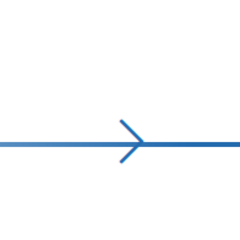Four stages of EBLS
| Stage 1 | Stage 2 | Stage 3 | Stage 4 |
SCOPING THE EVIDENCE FOR BETTER LIVES STUDY Support: Jacobs Foundation | EBLS FEASIBILITY Support: UBS Optimus | EBLS FOUNDATIONAL Support: Fondation Botnar, Consuelo Foundation, | EBLS-C19 |
In 2019 the EBLS project reached the stage 3 - The Foundational Study. Findings and a key report were presented at the 2nd EBLS Symposium on 25 November 2019. Due to the pandemic, the Foundational Study was extended to include a third wave of data collection, which started in February 2021. This included Valenzuela (Philippines), Hue (Vietnam), Cluj-Napoca (Romania), Koforidua (Ghana) and Kingston (Jamaica). This collaborative effort has been conducted via telephone-based interviews when the child is around the age of 18 months. This new wave pursues the following research goals:
- To contribute to the better understanding of the link between the mothers’ exposure to adversity during childhood and pregnancy, and their children's development in the second year of life. The comparative design of the study across five low- and middle-income countries (LMICs) will contribute to creating the foundations of better prevention policy relating to mental health and early child development in LMICs.
- To advance our understanding of the effects that COVID-related restriction measures had on mothers and their small children in low- and middle-income countries. The children of almost all study participants of the EBLS Foundational Study will have spent most of their lives under exceptional conditions since the outbreak of the pandemic. Emerging evidence already suggests that the stress, fears and constraints linked to COVID-19 exacerbate health inequalities of families. Vulnerable families may experience more conflict and violence, and be less able to support their young children. We will also aim to examine how variation between families and across the study sites in the economic, social and emotional strains of the pandemic can cause poor maternal and child well-being. These findings will be linked to relevant prevention policy recommendations.
The next steps for the EBLS are to scale up the Foundational Study to create a multicentric birth cohort study on the development of 12,000 children from middle income countries in all major regions of the world, using innovative ways to better understand how children of the 21st century can reach their full potential, and how Violence Against Children (VAC) can be reduced.
 EBLS entails three main components:
EBLS entails three main components:
- Research on Child Development: The EBLS cross-cultural birth cohort study will generate the knowledge required to support positive psychosocial development from the very early-life stages.
- Policy Impact: Its impact strategy will ensure that the knowledge generated will be widely disseminated and will influence national and international violence reduction policies and practices.
- Capacity Building: Activities will support the local expertise in each site, as well as strengthen the research infrastructure and collaborative networks needed for sustainable capabilities in order to promote positive psychosocial development from early childhood.

